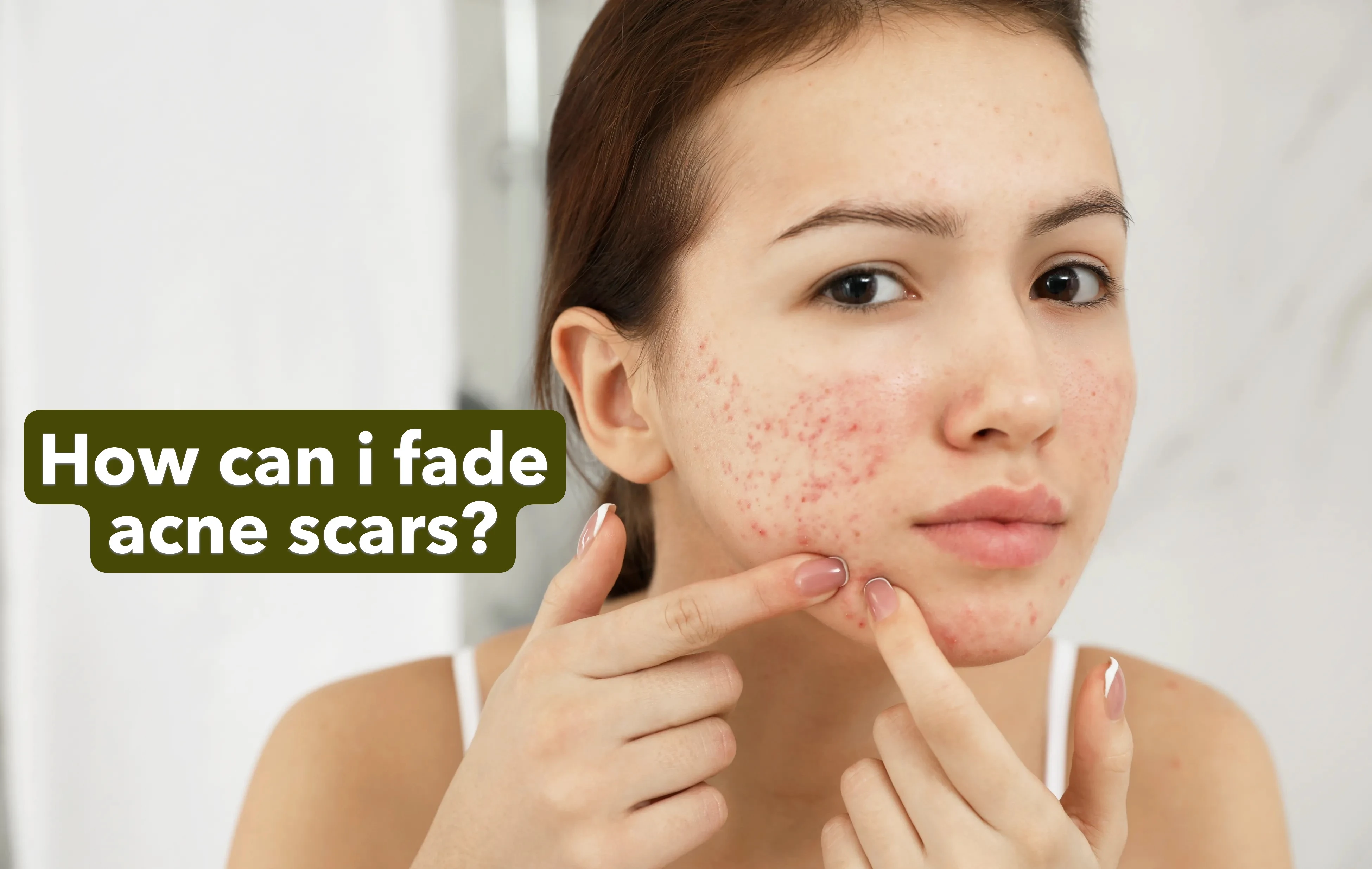How can i fade acne scars?
Fading acne scars is a gradual process that requires patience, consistency, and the right combination of treatments. Acne scars come in different forms—such as hyperpigmentation (dark marks), post-inflammatory erythema (redness), and atrophic scars (indentations like ice pick or boxcar scars). Each type responds to specific treatments, but most benefit from a multi-faceted approach involving skincare, targeted treatments, and, in some cases, professional procedures.
1. Understand the Type of Scar
Before treating acne scars, it’s important to distinguish between:
-
Post-Inflammatory Hyperpigmentation (PIH): Brown or dark spots left behind after acne heals, more common in darker skin tones.
-
Post-Inflammatory Erythema (PIE): Red or pink marks, often seen in lighter skin tones.
-
Atrophic Scars: Permanent indentations or depressions in the skin, such as ice pick, rolling, or boxcar scars.
2. Use Topical Brightening Agents
These help fade pigmentation and even skin tone over time:
-
Niacinamide: Reduces pigmentation, inflammation, and supports the skin barrier.
-
Vitamin C: A powerful antioxidant that brightens the skin and helps fade dark spots.
-
Azelaic Acid: Fights acne and reduces redness and pigmentation.
-
Alpha Arbutin: A gentle skin-lightening agent that targets melanin production.
-
Licorice Root Extract: Natural anti-inflammatory and brightening properties.
Recommended products:
-
The Ordinary Alpha Arbutin 2% + HA
-
Paula’s Choice 10% Azelaic Acid Booster
-
La Roche-Posay Mela-D Pigment Control Serum
3. Encourage Skin Cell Turnover
Exfoliating acids and retinoids speed up cell renewal and help fade discoloration and improve texture:
-
AHAs (e.g., glycolic acid, lactic acid): Help with surface pigmentation and overall brightness.
-
BHAs (e.g., salicylic acid): Penetrate pores and help with acne-prone and congested skin.
-
Retinoids (e.g., adapalene, tretinoin): Promote collagen production and fade dark marks over time.
Recommended products:
-
Differin Gel (Adapalene 0.1%) – available OTC
-
The Ordinary Glycolic Acid 7% Toning Solution
-
Paula’s Choice 2% BHA Liquid Exfoliant
4. Repair and Protect the Skin Barrier
A damaged skin barrier slows down the healing of scars. Use products with:
-
Ceramides
-
Panthenol (Vitamin B5)
-
Hyaluronic Acid for hydration
Daily sunscreen is non-negotiable. UV exposure can worsen scars and delay fading. Use a broad-spectrum SPF 30 or higher every day, even when indoors.
Recommended sunscreen:
-
EltaMD UV Clear SPF 46
-
Neutrogena Ultra Sheer Dry-Touch SPF 55
5. Consider Professional Treatments
For deeper or persistent scars (especially atrophic), professional treatments may offer faster and more significant results:
-
Microneedling: Stimulates collagen and improves texture.
-
Chemical Peels: Removes outer skin layers to fade pigmentation.
-
Laser Therapy: Targets pigmentation and boosts collagen production.
-
Dermal Fillers: Temporarily lift depressed scars.
Always consult a licensed dermatologist before undergoing these procedures.
Conclusion
Fading acne scars requires consistent use of brightening agents, exfoliants, retinoids, hydration, and daily sun protection. More severe scars may require professional treatments. With the right routine and patience, you can significantly improve skin tone and texture over time.

Related Blog
What Causes Oily Skin and Can It Be Managed Naturally? Exploring Root Causes and Gentle Solutions
Aug 2, 2025 by Admin
General
What Are the Signs That You Have Sensitive Skin? Key Symptoms to Help You Identify This Delicate Skin Type
Aug 1, 2025 by Admin
General